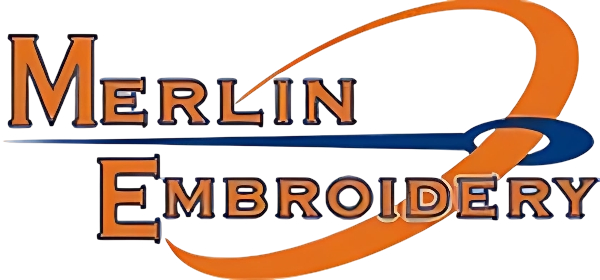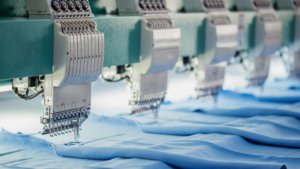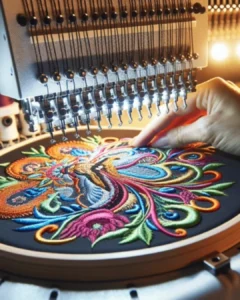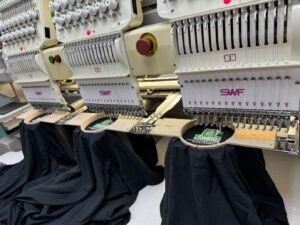From Caps To Jackets: The Versatility Of Custom Embroidery
Have you ever thought about the impact of custom embroidery on your wardrobe or business? The versatility of custom embroidery is often underestimated, overshadowed by more conventional printing methods. But, let’s face it; there’s a certain charm and durability to embroidered designs that just can’t be replicated by other methods.
In this article, we’ll take a closer look at how custom embroidery has permeated various aspects of our daily lives and wardrobes, transforming ordinary items into personalized masterpieces. Whether you’re considering custom embroidery for personal use or business branding, you’ll discover how it can add an extra layer of sophistication and meaning to various items. So, let’s jump right in!
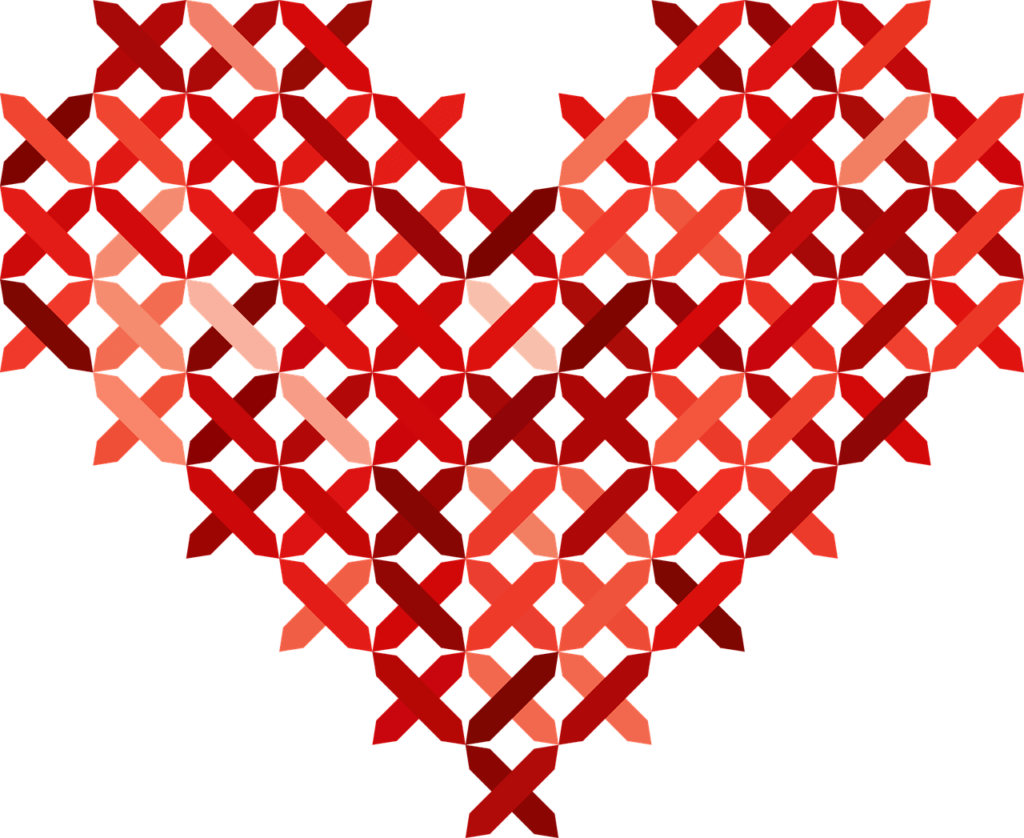
This image is property of pixabay.com.
What Is Custom Embroidery?
Custom embroidery involves stitching patterns, logos, or text onto fabric using a needle and thread. Unlike printing, embroidery has a three-dimensional quality because the thread is actually woven into the fabric. This technique adds texture and depth, making it a popular choice for a variety of applications.
Types of Embroidery
There are several types of embroidery, each offering unique benefits:
| Type | Description |
|---|---|
| Hand Embroidery | Traditional method where the stitch work is done by hand for detailed, intricate designs. |
| Machine Embroidery | Uses automated machines to create precise and consistent patterns. Very efficient for bulk orders. |
| 3D Puff Embroidery | A technique that adds a three-dimensional foam under the embroidery, making the design stand out more. |
Why Choose Custom Embroidery?
Choosing custom embroidery offers several advantages over other customization methods, like screen printing or digital printing.
Durability
One of the main benefits is its durability. Embroidered designs often last longer because the threads are sewn directly into the fabric. This means your design won’t fade, peel, or wash away over time.
Elegance and Texture
Embroidery adds a level of elegance that simple prints often can’t achieve. The stitched designs give a textured feel, which not only looks premium but also feels unique to the touch.
Versatility
From caps to jackets, custom embroidery can be applied to a wide range of products. This makes it a versatile option for both personal and business uses.
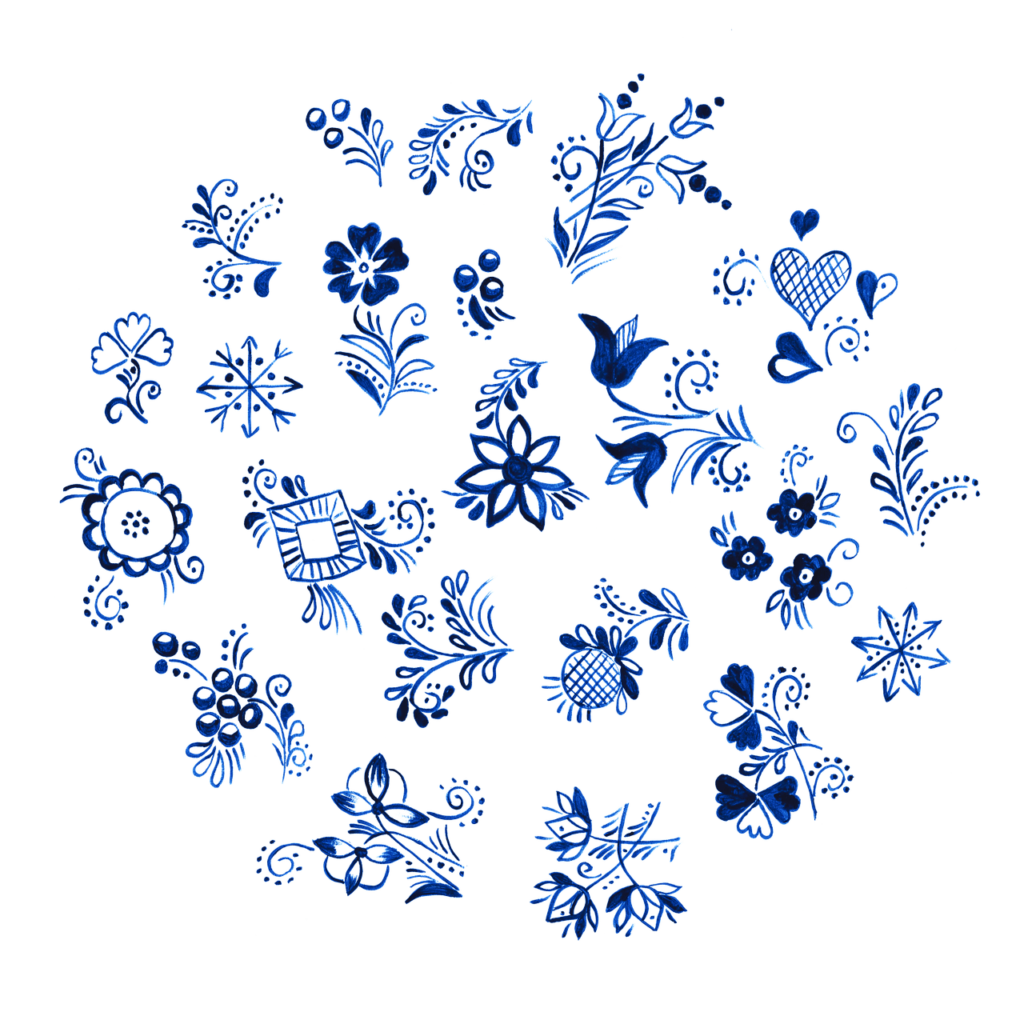
This image is property of pixabay.com.
Popular Uses Of Custom Embroidery
Now that you know what custom embroidery is and why it’s beneficial, let’s get into where you can use it.
Caps
Who doesn’t love a good cap? Whether it’s for a sports team, a brand, or just personal style, caps are a fantastic medium for custom embroidery.
Snapbacks and Baseball Caps
Snapbacks and baseball caps often feature embroidered logos or text, contributing to their iconic look.
Beanies
Beanies are another great option. A simple embroidered logo can turn an ordinary beanie into a statement piece.
Shirts and Polos
Custom embroidery on shirts and polos is a staple in the corporate world. Embroidered logos add a professional touch to uniform apparel.
Jackets and Outerwear
From denim jackets to windbreakers, custom embroidery can add personalization and flair to outerwear. Whether it’s a small logo on the chest or a large design on the back, the options are endless.
Bags and Totes
Embroidering logos or designs on bags and totes can make a significant impact. These items often serve dual purposes: practical use and mobile advertising for businesses.
Specialized Items
From robes to aprons, towels to handkerchiefs, the list of items you can customize with embroidery is endless.
How to Choose the Right Design
Choosing the right design for your custom embroidery is crucial for achieving the desired effect.
Keep It Simple
Complex designs can be challenging to embroider, especially on smaller items. Simple logos or minimalistic text often look cleaner and more professional.
Consider the Fabric
Not all fabrics are created equal when it comes to embroidery. Some fabrics, like fleece, may not hold intricate designs well.
Color Choices
Choose thread colors that contrast well with the fabric but also stay true to your brand or personal preferences.
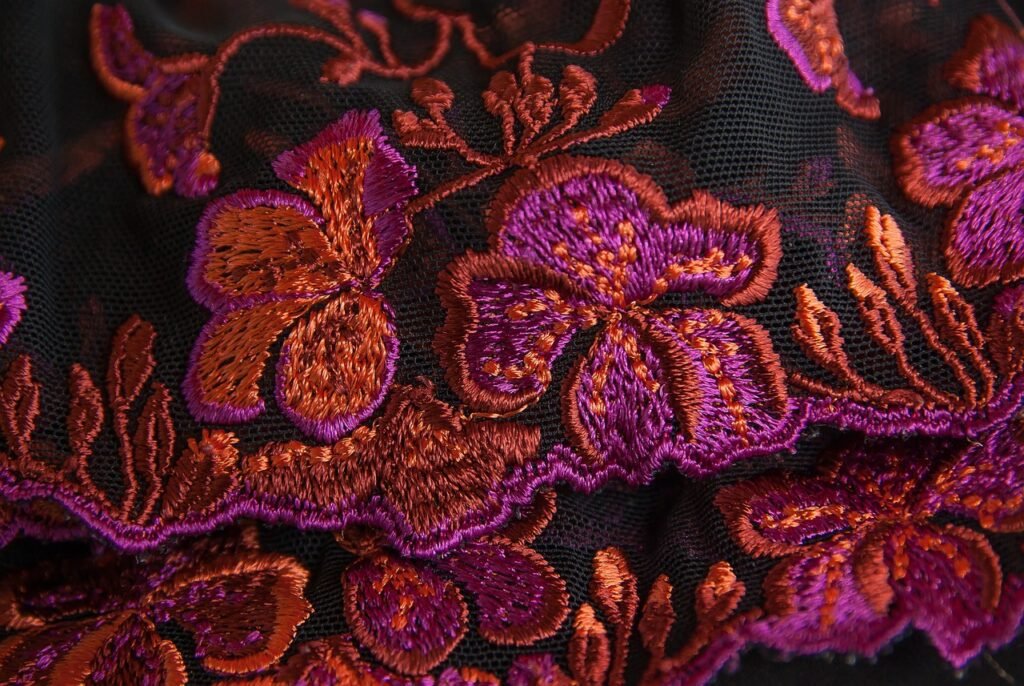
This image is property of pixabay.com.
The Custom Embroidery Process
Understanding the embroidery process can help you appreciate the craftsmanship involved and make more informed choices.
Designing
The first step involves creating or selecting a design. This often includes digitizing the design, converting it to a format that embroidery machines can read.
Choosing Threads and Fabrics
After the design, you’ll need to select your threads and fabrics. Different types of thread provide varying looks and feels, so you can choose what best suits your needs.
The Actual Embroidery
Once everything is set, the embroidery process begins. Machines stitch the design onto your chosen item, bringing your vision to life.
DIY Embroidery – A Fun and Rewarding Hobby
You don’t need industrial machines to get into embroidery. Whether you’re looking to start a new hobby or personalize your clothing, DIY embroidery can be a rewarding experience.
Basic Tools You’ll Need
- Needle and Thread: The basics.
- Hoop: Keeps your fabric taut.
- Fabric: Start with something simple like cotton.
- Pattern: Either print one or sketch your own.
Simple Techniques to Start With
- Backstitch: Perfect for outlines.
- Satin Stitch: Great for filling areas.
- French Knots: Adds a 3D effect.
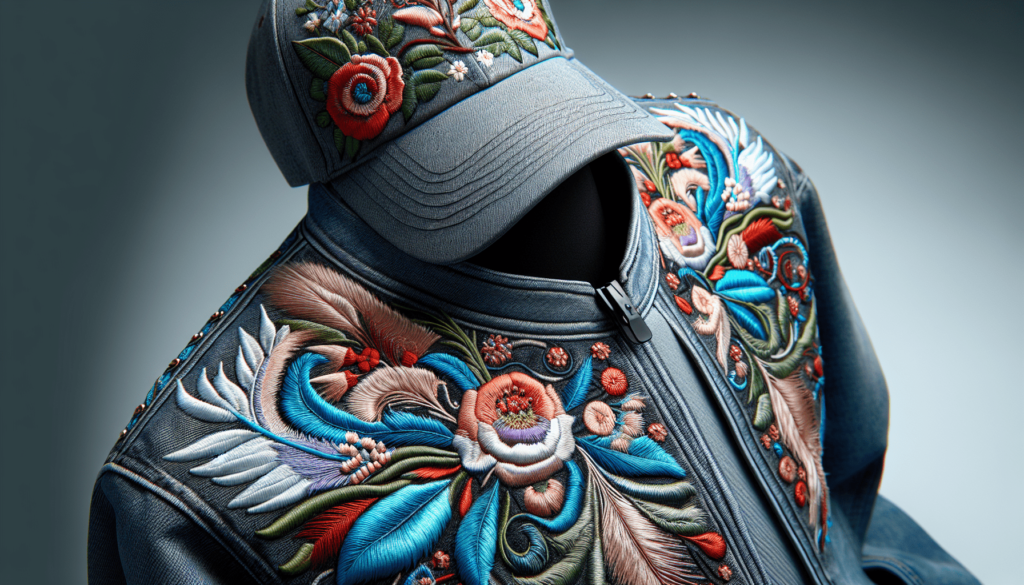
Business Benefits of Custom Embroidery
If you run a business, custom embroidery can serve as an excellent tool for branding and marketing.
Uniforms and Teamwear
Nothing says professional like a cohesive team wearing branded uniforms. Embroidered logos contribute to a polished look.
Promotional Products
Custom embroidered items make great promotional products. From caps to tote bags, these items serve as practical gifts that keep your brand top of mind.
Cost-Efficiency
While the initial cost of embroidery may be more than printing, the longevity of embroidered items can provide better value over time.
Maintaining Your Embroidered Items
To ensure your embroidered items last as long as possible, proper care is essential.
Washing
Use gentle cycles and mild detergents to wash embroidered items. If possible, turn the items inside out to protect the embroidery.
Drying
Air drying is often the best option to prevent any potential damage from dryer heat.
Ironing
If you must iron, use a low setting and place a cloth between the iron and the embroidery to prevent any damage.
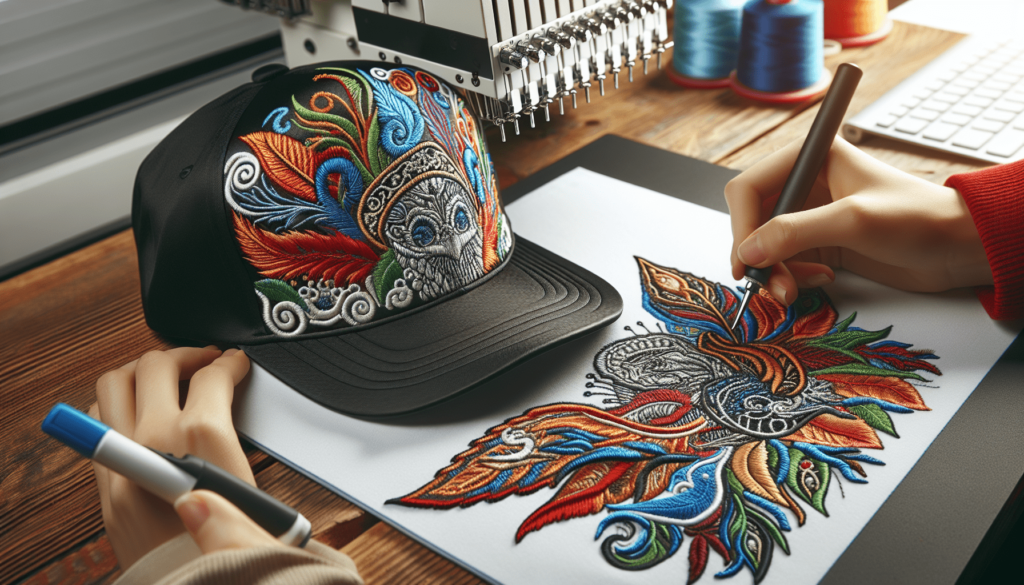
Conclusion
From caps to jackets, custom embroidery offers a versatile, durable, and elegant way to personalize a wide range of items. Whether you’re looking to add a personal touch to your wardrobe or elevate your business branding, custom embroidery has something to offer everyone.
So next time you’re looking to make a statement, consider the timeless appeal of embroidery. It’s more than just stitching—it’s about adding a unique, personal touch that speaks volumes.
